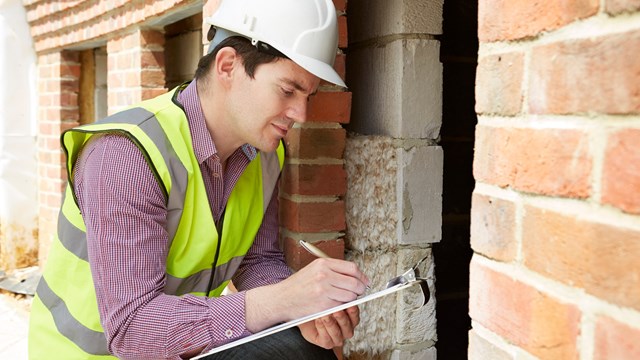Almost every condo owner, from time to time, has thought about running for the board. Most quickly discount the notion, but a fair number throw their hats into the ring, and some of these even get elected. But what does it mean to be elected to the board? What kind of person does it take to serve, and what are their duties?
Not surprisingly, most board members are ordinary people like Karen Krolak and her husband, Jason Ries, who own a condo in a four-unit building in Somerville, Massachusetts. They are also both volunteers on their association’s board of directors. It’s a small, informal board, with each volunteer sharing the officer responsibilities of president, vice president, secretary and treasurer.
Other board members have more than a smidgen of business experience — like Rob Harrington, founder and chairman of the online home resource site OptHome.com, based in Southborough, Massachusetts. Besides his day job, Harrington also volunteers his time on several condo boards, including a larger 48-unit building.
Board members in homeowner associations and condo buildings are typically made up of volunteers — like Krolak, Ries, Harrington and others — who take time out of their busy schedules to attend meetings, run committees and make sure their investments are protected.
A Thankless but Important Job
Volunteering for an association board can be a time-consuming position that includes a host of responsibilities — such as enforcing governing documents, performing fiduciary duties, and dealing fairly with both fellow board members and residents alike, while being in charge of millions of dollars in assets. At the same time, these dedicated volunteers can be liable if anything goes wrong, often with a threat of litigation. It’s often a thankless job, but nonetheless an important one.
“A board is like a republic,” says David Barrett, ARM, with American Properties Team in Woburn, Massachusetts. “The boards answer to the unit owners. Just like we elect Congressional members to act on our behalf, but we don’t get to see everything they decide. If we don't like the board, the only thing we can do is vote to remove them or vote in new ones.”
So why run at all? New volunteers join the board because they are unhappy with what the board is doing (perhaps they disagree with how much money is being spent or how it is being spent), because there is a particular issue they want to address or, ideally, because they just want to get involved. Some may even have an expertise in a subject that can help the board or the association.
In his complex at West Roxbury, Harrington’s financial expertise ended up saving his board a lot of money. “I reviewed the insurance and found if we changed everyone’s washing machine hoses from rubber to steel, we could drop the annual premium by over $6,000 per year!” he says. “Maybe you know about energy savings, landscaping, or you know a better way to paint the property.”
If you are considering joining your board, consider this brief tutorial on the responsibilities of board members and officers and what you should know before coming into your first meeting. The more educated you are, the easier it will be to navigate your way through a meeting, make decisions and cast votes on behalf of the homeowners and campaign for an officer’s role.
Board of Directors 101
Boards vary in size from community to community with smaller associations, such as Krolak’s, having just a few members, to larger communities having a dozen or more board members. Most boards have a chain-of-command — a president, vice president, secretary, treasurer and general board members, who do not hold titles, but attend meetings and hold voting privileges.
Larger boards may have other positions too, such as an assistant secretary or an assistant treasurer. In most larger communities, new board members aren’t likely to be voted into an officer position, although on smaller boards there are greater opportunities.
“There are no regulations and nothing in the condo documents that say that a board position has to have a line of succession, so it’s possible that someone new could come in and be president,” says Barrett.
However, he says that board members should be aware of their responsibilities before joining. “The most important thing they need to know is that board members have a fiduciary responsibility to the association to use good business judgment and make decisions on behalf of the unit owners,” says Barrett.
To help you learn more about your responsibilities, Krolak urges all new board members to read the condo documents and the previous board meeting minutes before attending the first meeting. “I know that they aren’t the most exciting documents, but they describe how your organization functions and what belongs to the condo association as opposed to the unit owners,” says Krolak. “Each organization is different, so don't assume that the rules from another condo that you have owned will apply to another building. The minutes will give you a better picture of the issues facing the board.”
These documents include the rules and the bylaws, which explains homeowners’ responsibilities. The bylaws explain that the board member must act for the benefit of the association, not the benefit of individual board members. They can't discriminate by favoring one homeowner over another, and this is frequently hard for new board members to do.
Harrington suggests potential board members review the insurance policies for coverage on actions they may make as a trustee. “This usually takes the form of directors and officers [D& O] coverage,” says Harrington. “You need to know if you are covered or have new liability exposure.”
Weigh Your Ability to Commit
Finally, consider what kind of a commitment you are able to make before getting involved. How often does your board meet and how long are the meetings? Most boards meet at least once a month, but some communities with a smaller staff may meet just a few times a year.
Summer can also be a time when things slow down because of people taking vacations. Will you be expected to serve on, or head, a committee? If so, how much additional time does that take and how many of those meetings are held? If you really can't make that kind of commitment, you may want to reconsider or take on a lesser role.
Getting elected to an association’s board can be a big job in and of itself —but the truth is that winning a seat is only the beginning. After making the decision to campaign for a seat, and then winning it, new board members can find themselves failing to understand exactly what they’ve gotten themselves into. Here’s a breakdown of the roles and responsibilities:
Officer Selection Process
Board members are elected by the homeowners during an annual meeting. However, the officer positions are decided by the board themselves. Each title brings with it different responsibilities. For example, the president is in charge of the board and owner meetings and appoints committees. The vice president works alongside the president and if the president can't fulfill his duties — for example, can’t attend a meeting — the vice president stands in.
Next to the board president, the role of treasurer is usually the most time-consuming position on a board. The treasurer receives management reports and invoices, and will review financial matters and the budget with the association’s accountant and manager. Because of this, board members with a financial background are often asked to serve as treasurer.
The secretary’s main function is to record minutes and keep copies of the records. In most associations, the managing agent or the property manager is the direct contact with the building professionals — accountant, contractors, etc., but there may be one liaison from the board who communicates with the professionals as well. “For example, typically, the treasurer will build a relationship with the CPA,” says Barrett. “Some treasurers ask for input from the CPA while doing the draft of the budget.”
The board also communicates with the unit owners, so it’s important to be a people-person. Oftentimes, homeowners will stop you — in the elevator, in your driveway, etc. — and use that opportunity to ask you questions about a complaint they filed, or try to find out information.
Establish Guidelines with Homeowners
Homeowners who know you personally may contact you by phone at any hour, day or night, to talk about community business. It’s important to establish guidelines and express to other homeowners that their matters will be taken care of during regularly scheduled board meetings. Do it respectfully and responsibly.
Barrett suggests, however, that any potential board members who joined just to focus on one platform or suggestion should reconsider how they approach their responsibilities.
“If you promised in a campaign that you were going to lower fees 10%, it might be very difficult to do that once you get inside, without knowing the full scope of the property,” says Barrett. “Once you are voted in, you may find out that the cost-savings were [already] implemented and there’s not much else you can do. Instead, come into the association, learn what’s going on and then try to implement some of your ideas.”
Lisa Iannucci is a freelance writer for New England Condominium magazine.







36 Comments
Leave a Comment